Focus
Your Present Location: HOME> Focus-
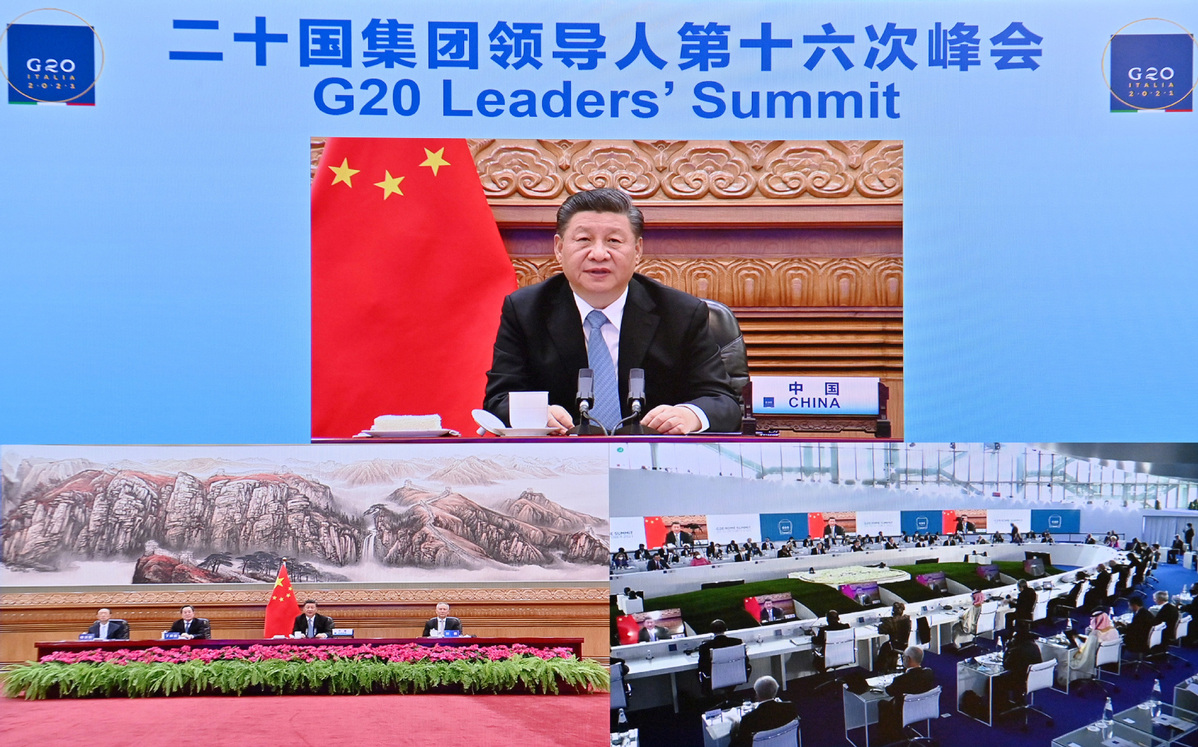
Jia Jinjing: Initiative to drive robust global growth
Media buzzwords such as “loses steam” have frequently struck a public nerve worldwide recently in reference to rising commodity prices, disrupted supply chains, dwindling trade or shrinking job opportunities in a number of regions.
2021-11-26 -
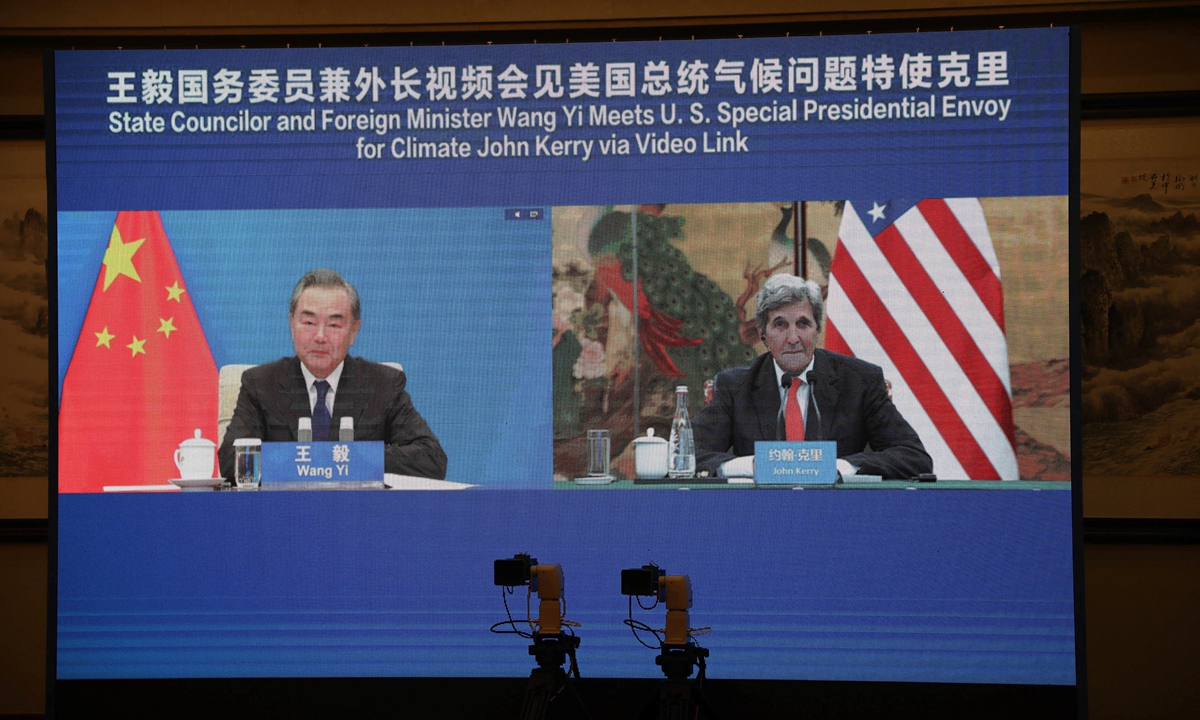
Zhao Minghao: China focuses on climate change, but not Washington’s will
The Biden administration has tried to use the 26th United Nations Conference of Parties on Climate Change (COP26) in Glasgow, the UK, to show off US leadership. The US has announced many new initiatives, including the Clean Energy Demand Initiative and the Global Methane Pledge. It has also announced the First Movers Coalition, aiming at allowing global companies in the fields of steel and shipping to adjust their procurement policies to support clean energy technologies.
2021-11-25 -
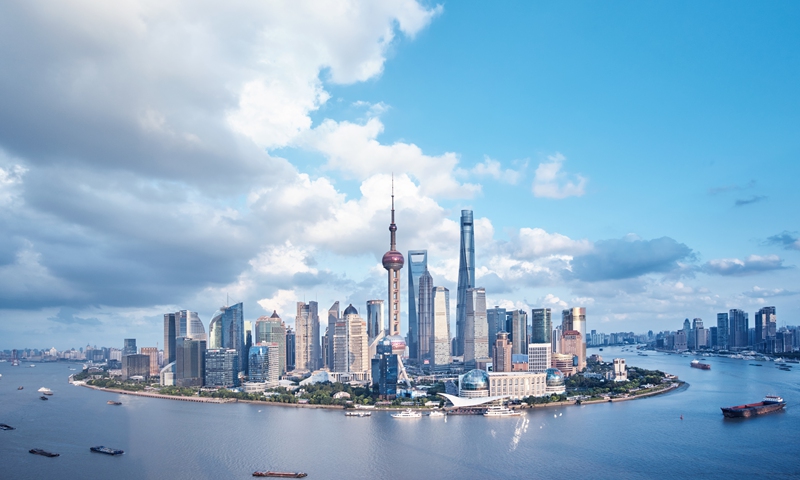
Liu Ying: After leaders’ meeting, China promotes multilateral trade, while US seeks deal with allies
Senior Chinese officials have sent clear signals that China will hold an unwavering stance on further opening up to foreign businesses and promoting global cooperation to tackle rising global economic and trade challenges amid the COVID-19 pandemic, as global attention has been focused on potential cooperation between China and the US following a high-stakes leaders meeting on Tuesday.
2021-11-24 -
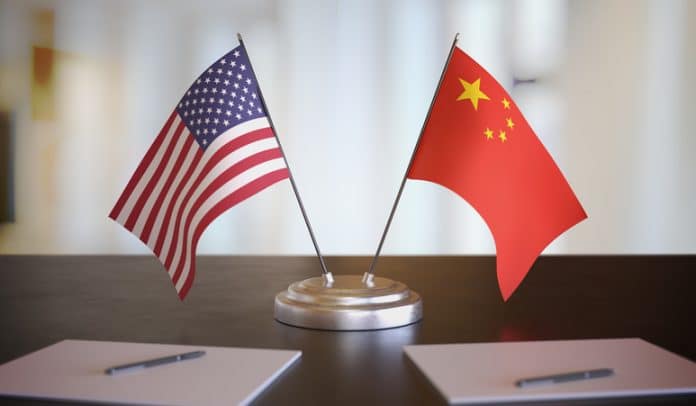
Wang Wen: What Should the Competition Between China and the US Be For
Human civilization is approaching the close of the first quarter of the 21st century with eyes toward 2050. What kind of competition do China and the United States need to truly fathom if they are to advance global civilization in their great power competition?
2021-11-23 -

Martin Jacques: In time Common Prosperity will come to beregarded as one of China’s most important initiatives since the beginning ofthe reform period.
I would like toexpress my thanks to the organisers for inviting me to speak at this symposiumon Common Prosperity. I think in time Common Prosperity will come to beregarded as one of China’s most important initiatives since the beginning ofthe reform period. In these brief remarks, I want to make four points.
2021-11-22 -

Vijay Prashad: Why our climate isn’t jumping for joy after COP26
The COP26 achieved very little of the urgent demands raised by world leaders and civil society organizations to save the planet as corporate interests reigned supreme
2021-11-22 -
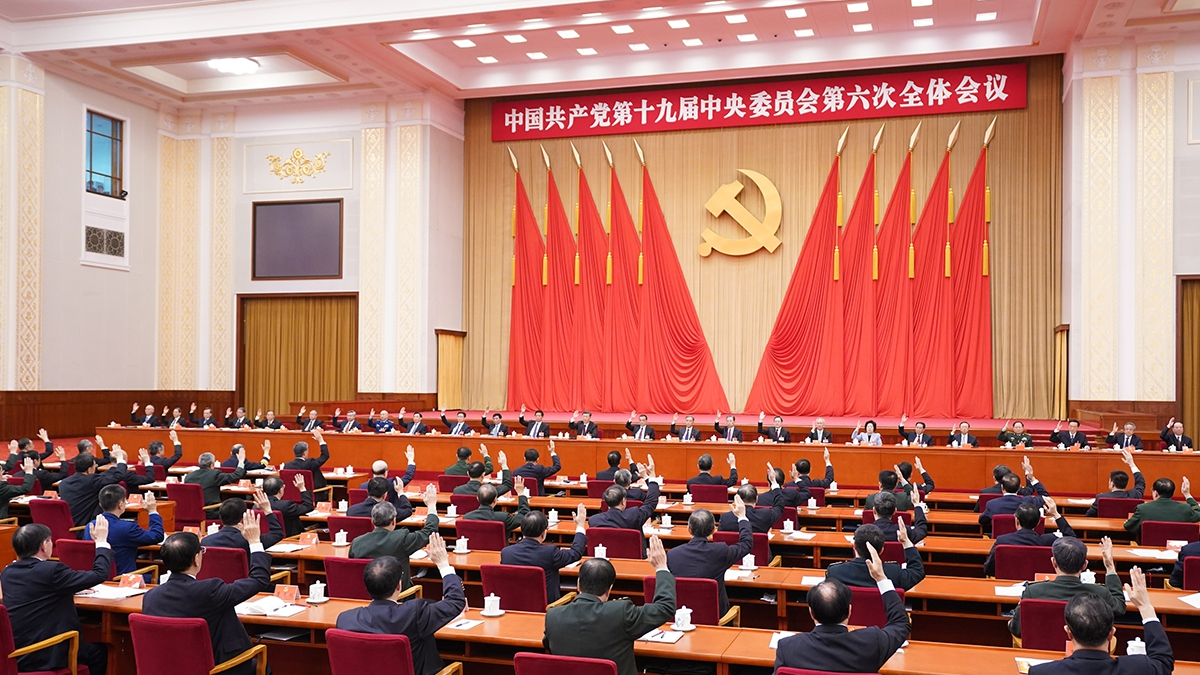
John Ross: To understand China, read the CPC's new decisions
It is recognized not only in China but internationally that the sixth plenary session of the 19th Central Committee of the Communist Party of China (CPC), held on November 8-11, was exceptionally important because it adopted a "Resolution on the Major Achievements and Historical Experience of the Party over the Past Century."
2021-11-19 -

John Ross: Biden tones down harsh rhetoric against China
The US request for a Joe Biden-Xi Jinping summit reflected at least a partial realisation by the US that its attempt to bully or coerce China, launched by Trump, has been entirely unsuccessful. Therefore, the Biden administration has now attempted, at least on some key issues, to return to a more rational discussion with China.
2021-11-19 -
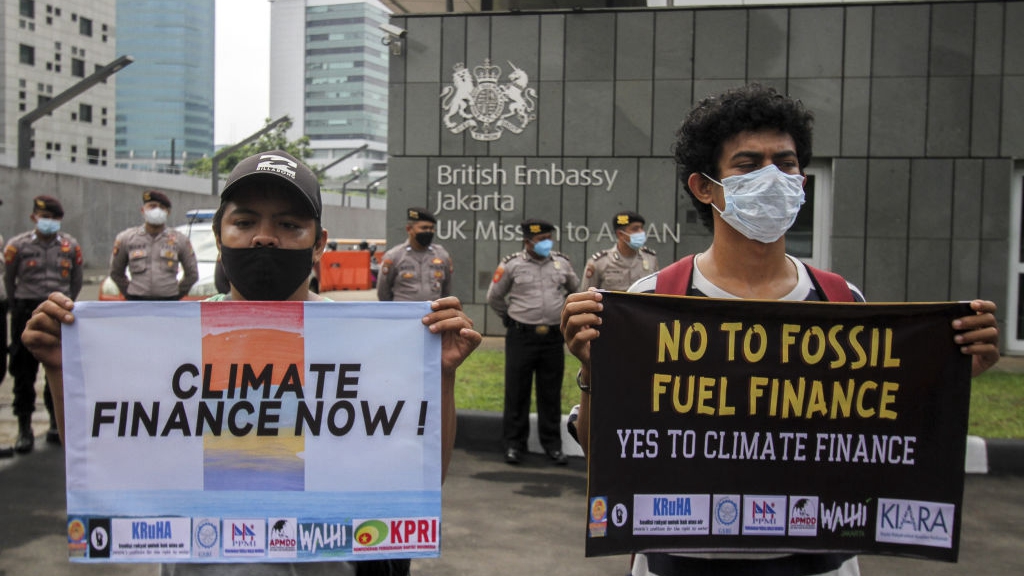
Jeffrey D. Sachs: Fixing climate finance
The United Nations Climate Change Conference in Glasgow (COP26) fell far short of what is needed for a safe planet, owing mainly to the same lack of trust that has burdened global climate negotiations for almost three decades.
2021-11-18 -
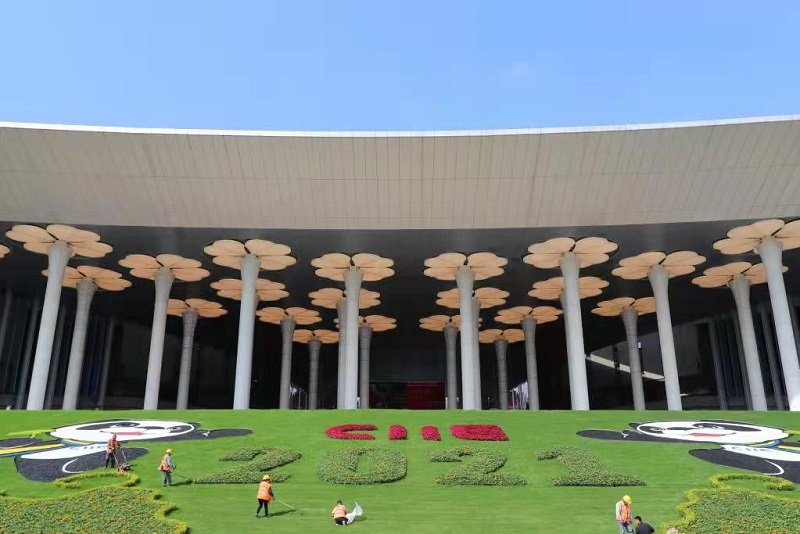
William Jones: Countries Will Look to China for Sustenance after Emerging from COVID Restrictions
Some of the “wags” in the international financial media are doing some crowing over their conjectured China’s imminent economic demise, pointing to the country’s slowing down in GDP growth in the third quarter (Q3), which stood at 4.9 percent over the same period of last year. It was much slower than the increase of 18.3 percent in Q1 and 7.9 percent in Q2. And they in particular dwelt on China’s Evergrande crisis and recent power shortages. London’s Financial Times trumpets, “China Manufacturing Slows As Property and Energy Woes Hit Economy” while Bloomberg highlights, “China Economy Weakens As Power Crunch, COVID Rules Hurt.” But, as so often has been the case in times past, the oracles of the London-New York financial press are wrong again. China is opening the fourth China International Import Expo in Shanghai in early November and the turnout from international companies is quite sizeable with many high-tech firms eager to tap into the Chinese market. The opening of the expo this
2021-11-18 -
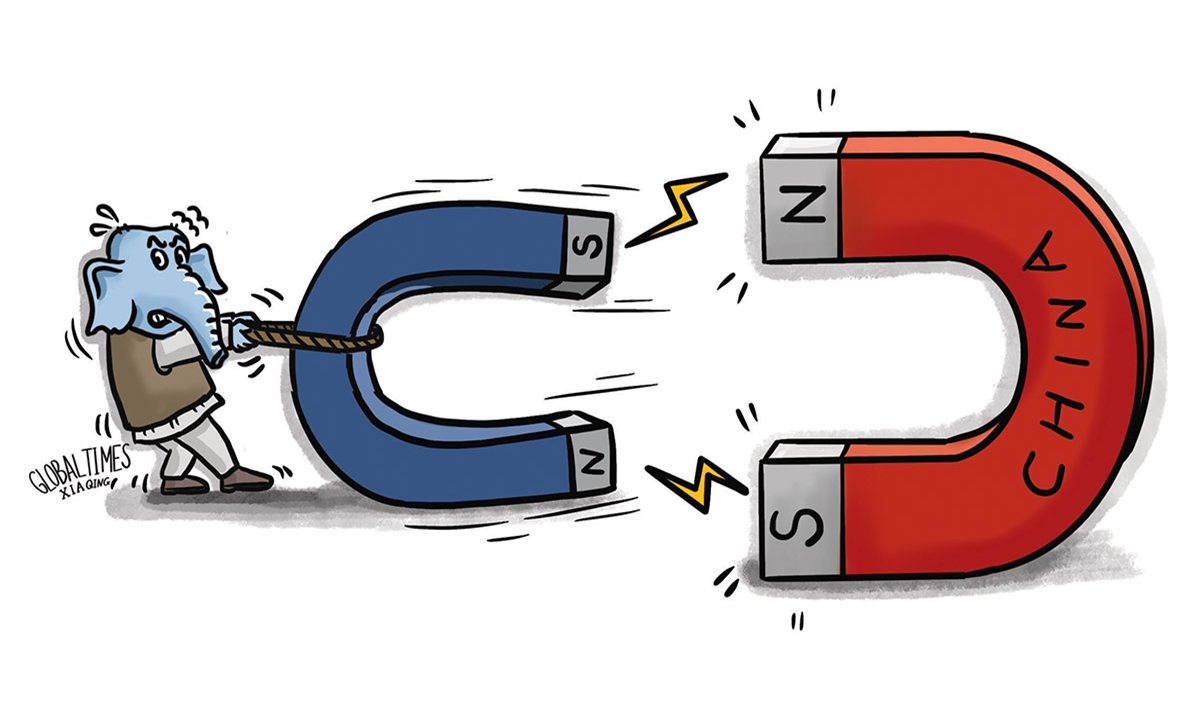
Liu Zongyi: Time for New Delhi to reconsider its anti-China economic policy
Observers had estimated that bilateral trade between China and India might surpass the milestone of $100 billion in 2021 despite a cold political and diplomatic relationship between the two nations. The latest trade data from China's Customs revealed that the new record was reached in October as two-way trade totaled $102.29 billion in the first 10 months of the year, surging 47.8 percent year-on-year.
2021-11-18 -

Vijay Prashad: Why are both Republicans and Democrats so obsessed with Cuba?
US Senator Marco Rubio (R-FL) appears to be obsessed with Cuba. Every few days he takes to social media or makes remarks to the press about his desire to overthrow the Cuban Revolution. In recent months, Rubio has played a key role in drumming up support for anti-government protests in Cuba. On September 23, 2021, for instance, Rubio tweeted, “The brave people of Cuba lost their fear of protesting against the dictatorship that represses them. Holguín raises its voice against tyranny.” Rubio included an article about the Cuban town of Holguín in his tweet, where “a group of Cuban citizens” are planning to hold a “march against violence” on November 20. This article appeared in Diario de Cuba, a news site based in Miami, Florida, which from 2016 to 2019 received substantial funding from the National Endowment for Democracy, an independent nonprofit that is largely funded by the US Congress.
2021-11-17 -
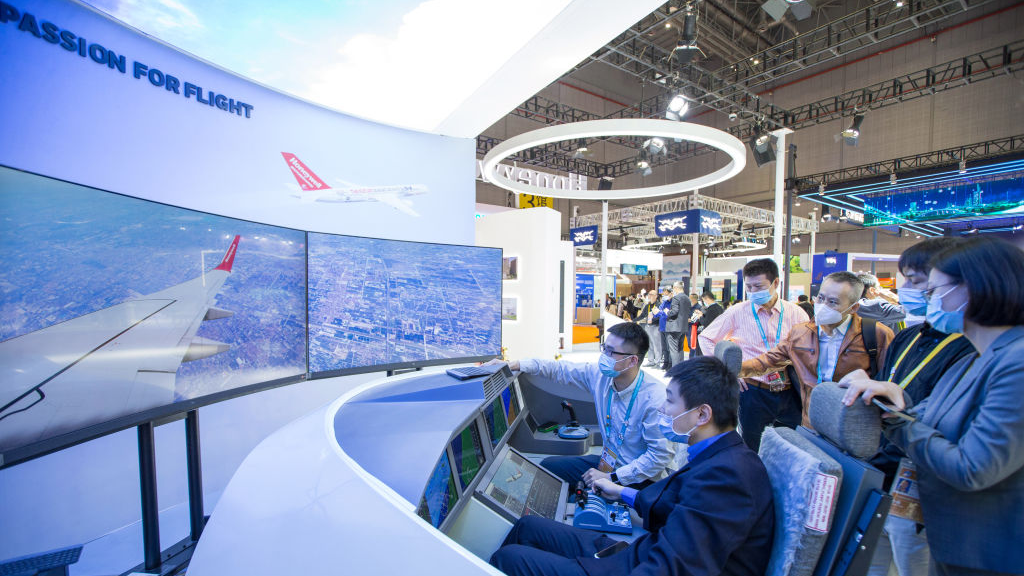
William Jones: U.S. companies express increased interest in this year's CIIE
While the Biden Administration is cooking up new ways to restrict Western reliance on "supply chains" connected to China, most recently in the U.S.-EU trade agreement where the two committed to use only "clean" aluminum and steel (produced in plants not fueled by coal), the major U.S. companies are traveling to Shanghai for the China International Import Expo (CIIE) to exhibit their wares and to establish a firm footing in the Chinese market. In fact, this year there are 198 American companies exhibiting at the CIIE, more than in any of the three preceding CIIEs.
2021-11-16 -
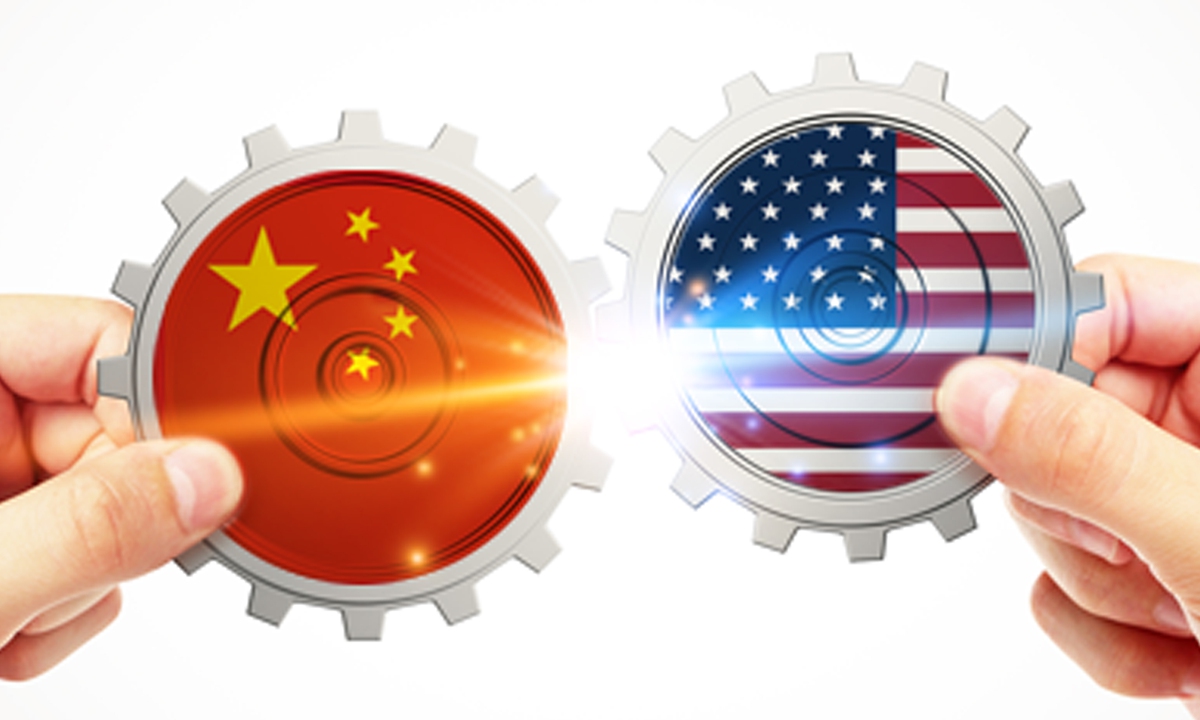
US' scrutiny on McKinsey shows rising hurdles for business ties
Recent allegations raised by US media and politicians against US-based consulting giant McKinsey & Co over its businesses with Chinese state-owned enterprises (SOEs) could pose more challenges for an already tough environment for cooperation between Chinese and US businesses, Chinese experts said on Sunday.
2021-11-16 -
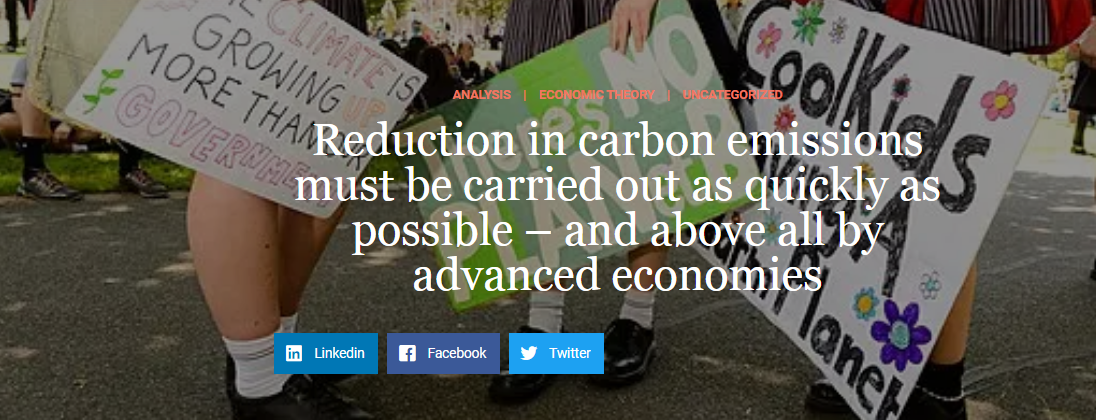
John Ross: Reduction in carbon emissions must be carried out as quickly as possible – and above all by advanced economies
An earlier article, “COP26: Why Advanced Countries Must Proportionately Make By Far the Biggest Cuts in Carbon Emissions – Factual Briefing,” analysed the data produced by the Intergovernmental Panel on Climate Change (IPCC) ahead of the COP conference – in its report: “Climate Change 2021: The Physical Science Basis”. The conclusion which follows from the IPCC’s data is clear.
2021-11-05 -
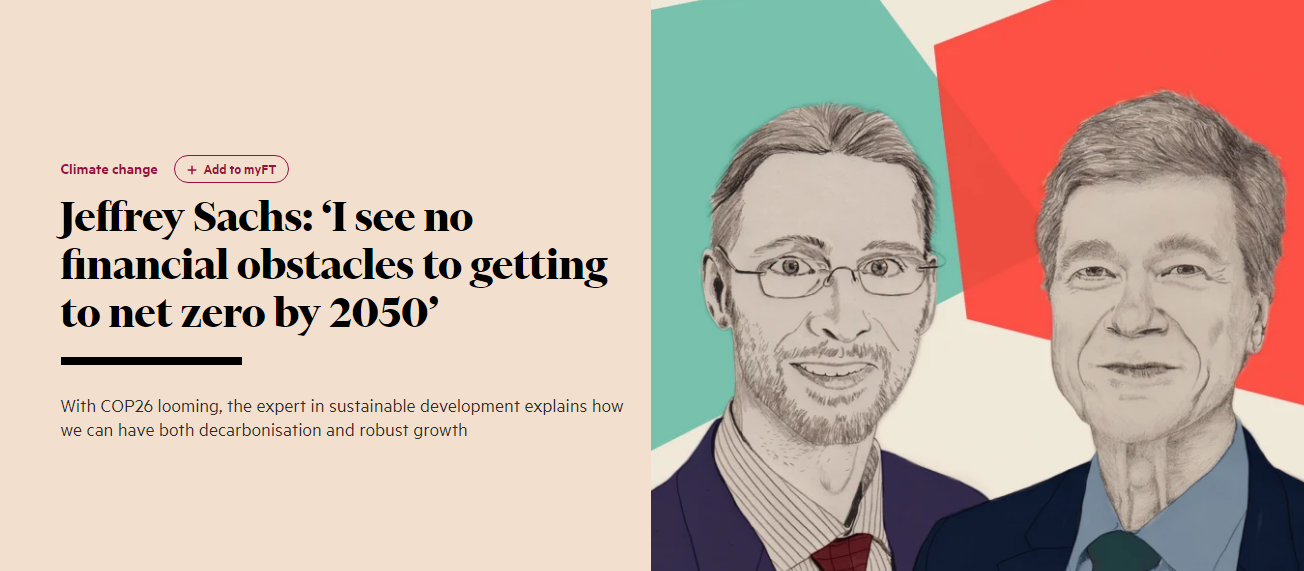
Jeffrey Sachs: ‘I see no financial obstacles to getting to net zero by 2050’
For more than three decades, Jeffrey Sachs has had a knack for placing himself at the heart of urgent economic policy issues — all of which seem to converge in our current crisis. In the late 1980s he worked on macroeconomic stabilisation and taming runaway inflation. From 1989 on, he advised governments on their economic transition from communism to liberal democracy — a model now under threat in some of those very countries as well as challenged in the west.
2021-11-04 -
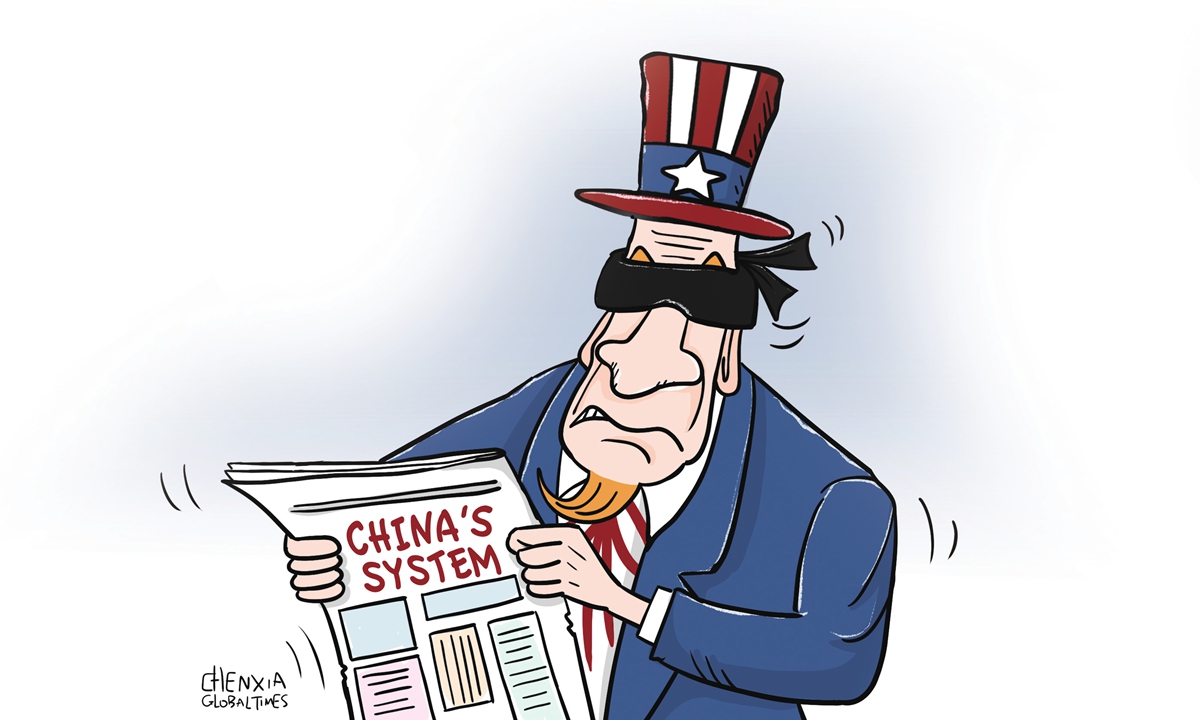
Ding Gang: Shanghai speed in handling of epidemic flare-up a hint of China’s system
On October 31, the Shanghai Disney Resort suddenly shut down after a confirmed COVID-19 case was found to have visited there one day earlier. This news was quickly reported by media globally.
2021-11-04 -
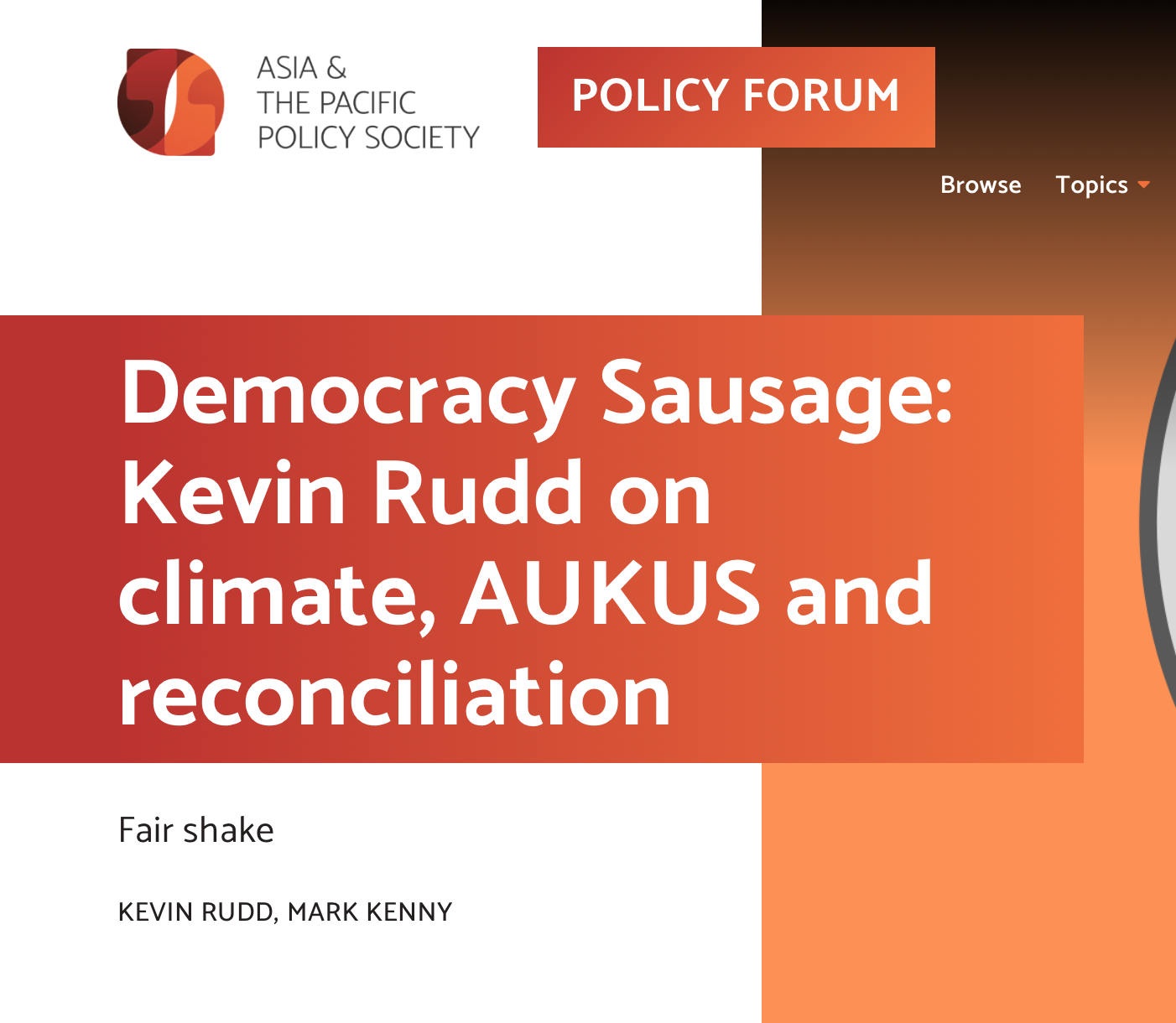
Democracy Sausage: Kevin Rudd on climate, AUKUS and reconciliation
Former Prime Minister Kevin Rudd joins Mark Kenny on this week’s episode of Democracy Sausage to discuss the country’s climate policy ahead of COP26 and why the Australian government might be underestimating the public when it comes to reconciliation.
2021-11-03 -
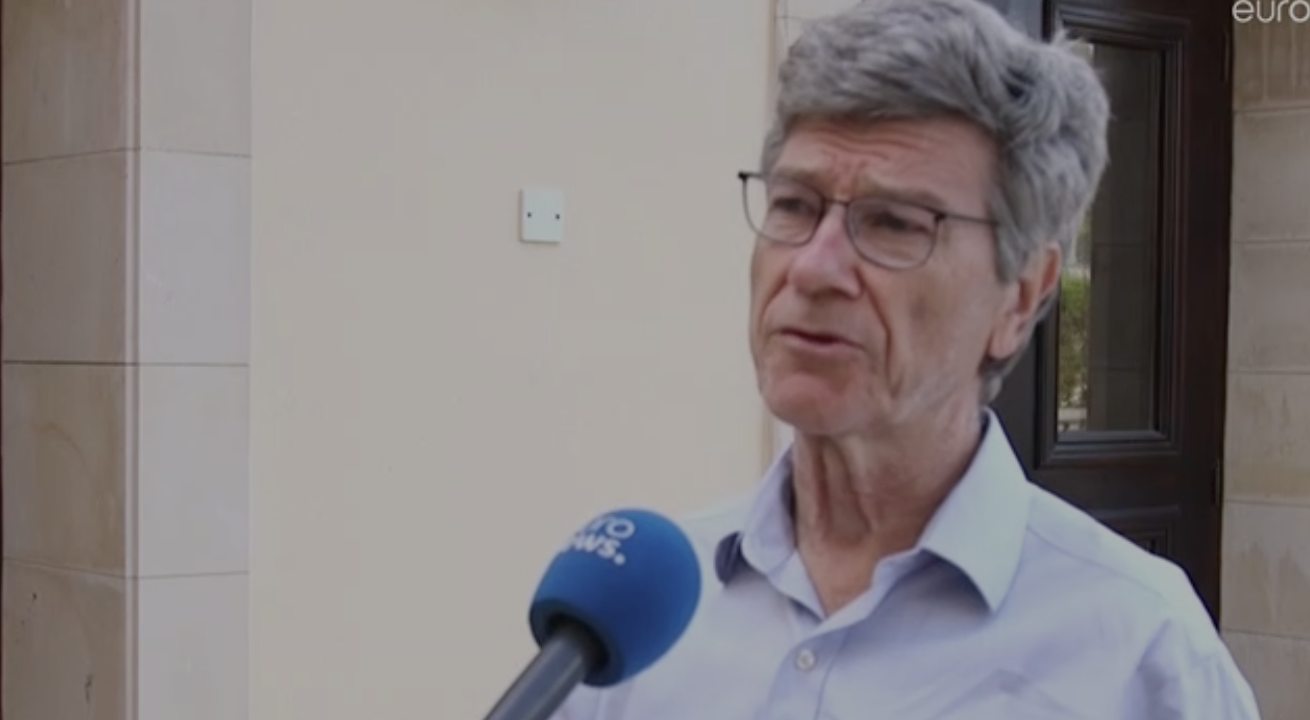
Jeffrey Sachs :'You don't need nuclear to get to net zero,'
Jeffrey Sachs, the Director of the Center for Sustainable Development at Columbia University, is known throughout the world for his effective strategies that address complex challenges.
2021-11-03 -
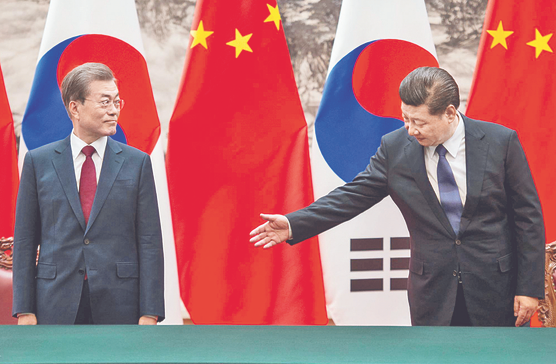
Korea Joongang Daily: When China rules the world
The United States and China may not be shooting guns at each other, but they are practically engaged in a war. The world is anxiously watching this hegemony contest. Meanwhile, 75 countries are the shrimps worrying about being crushed in the fight between the two whales.
2021-11-02
























































































 京公网安备 11010802037854号
京公网安备 11010802037854号





